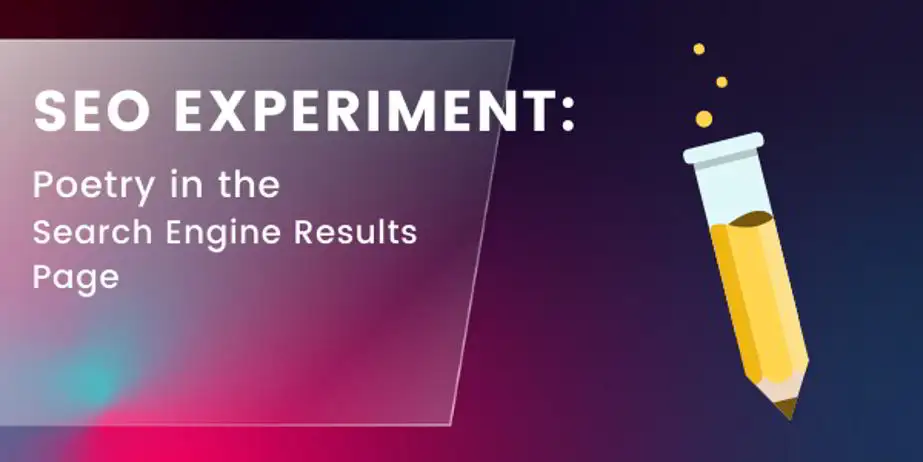
SEO Experiment: Poetry in the Search Engine Results Page
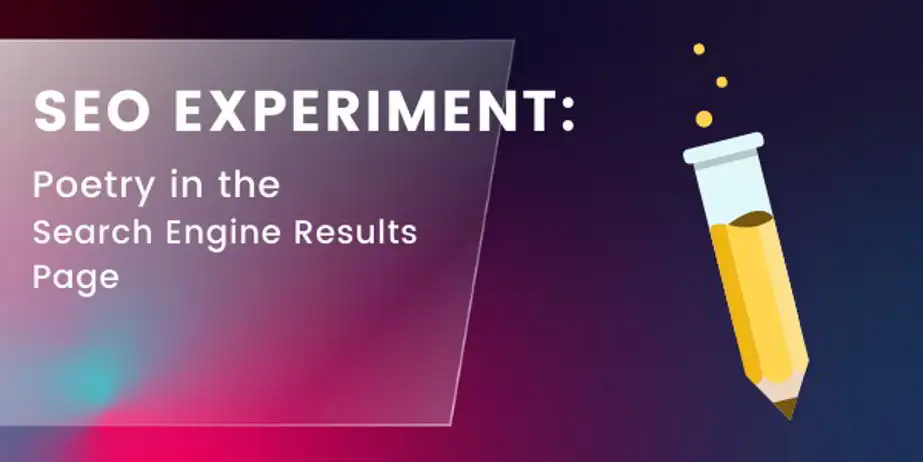
We thought long and hard on what we could possibly do to mark the children’s mental health week 2020 which is this week (3rd – 9th of Feb 2020). We decided to do this:
We ranked 10 websites for a made-up keyword to turn the search engine result pages (SERPs) into a poem about mental health. In aid of Place2Be’s 2020 Children’s Mental Health Week, we sought to run the experiment to test how much control an SEO company could have over the SERPs and the order in which results are ranked using only onsite optimisation techniques. You can make a donation to support the week here.
Selecting the Poem
First, we selected an appropriate poem to use for the experiment which consisted of 10 lines. Each line was under 65 characters and the topic was about bullying. We decided to use a poem titled 'See Those People' which can be found here.
Finding a Keyword
We then identified a keyword to use for the test which didn’t return any indexed results in Google. The keyword ‘cmhw39f20’ (an acronym for Children’s Mental Health Week 3rd – 9th February 2020) was chosen for this experiment.
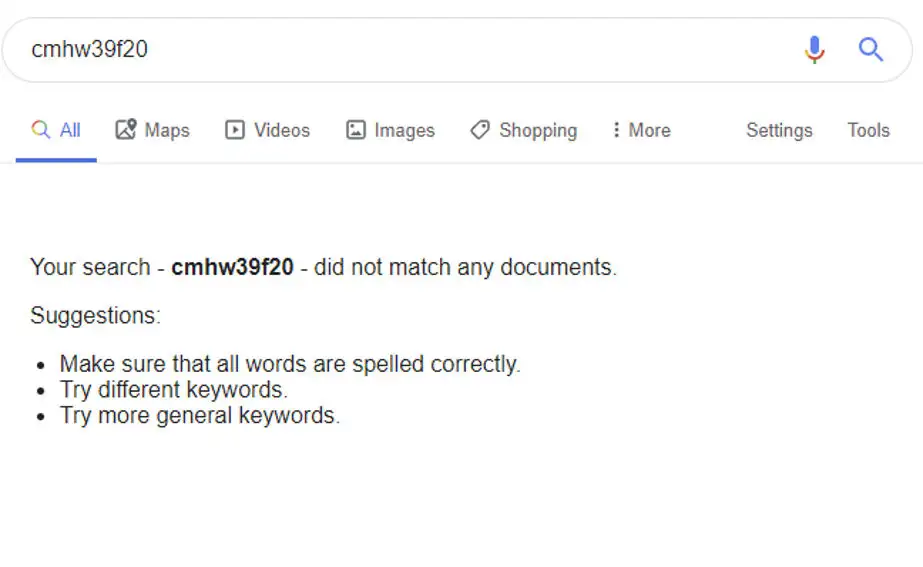
A search for the keyword at the start of the experiment which returned no results.
Domains
We then registered 10 brand new domains. These consisted of short, succinct names which also returned no results when searching for them on Google:
- aveonieds.com
- bistulmess.com
- chotoileds.com
- dyeadedos.com
- edostlerss.com
- fopcaseds.com
- gamorcers.com
- heabaslera.com
- irameblen.com
- aveoninno.com
Adding the Content
Next, we published websites on each domain following an almost identical structure. Different class and ID names where assigned for CSS changes (none of which contained the keyword) to give each one a unique look and feel. Each site also had the same amount of content to start with and the same keyword density. This helped eliminate any initial ranking signals which could make it harder for us to rank the results in the order we wanted to later.
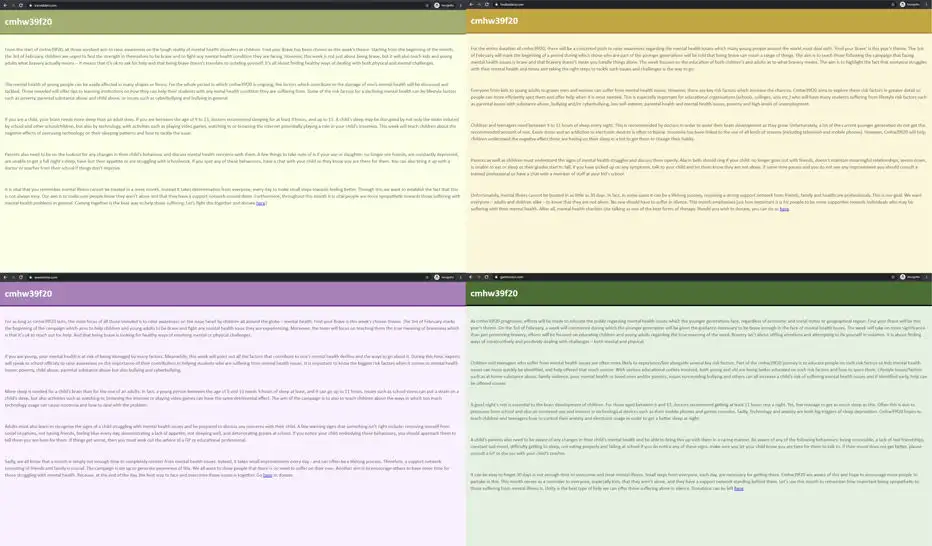
Screenshots of the test sites and their slight difference in styling.
Optimising the Results
Next, we added one sentence of the chosen poem to each of the sites meta titles. Initially, this meant that Google re-wrote the titles to make them more relevant for the keyword (by removing the poem sentence entirely and using the H1 which was the keyword as the meta title instead).
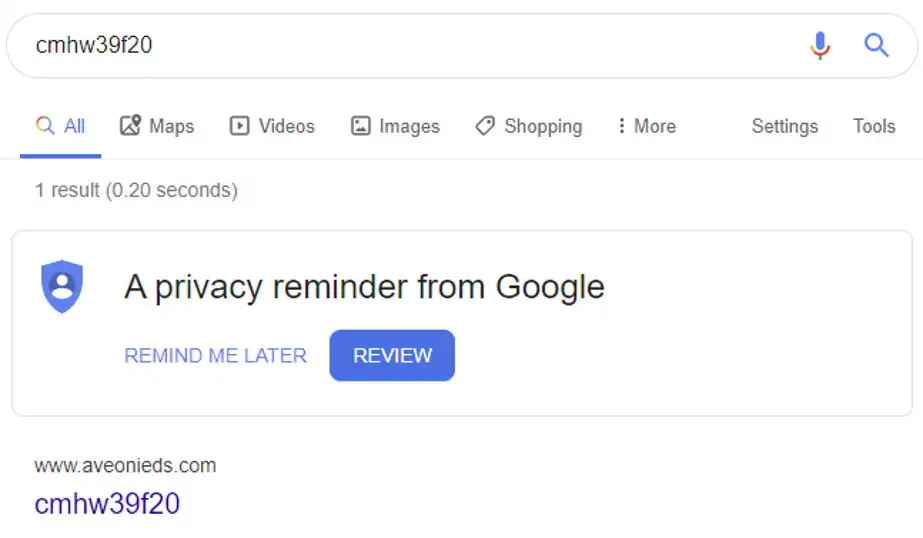
An early search for the keyword which showed only one indexed site where the meta title had been re-written by Google to exclude the poem sentence and they had added the keyword.
To overcome this, we added the keyword to the end of each title (even still, Google moved this to the start of each title when searching for the keyword). This solution did now mean that the titles were showing up correctly (although not in the correct order).
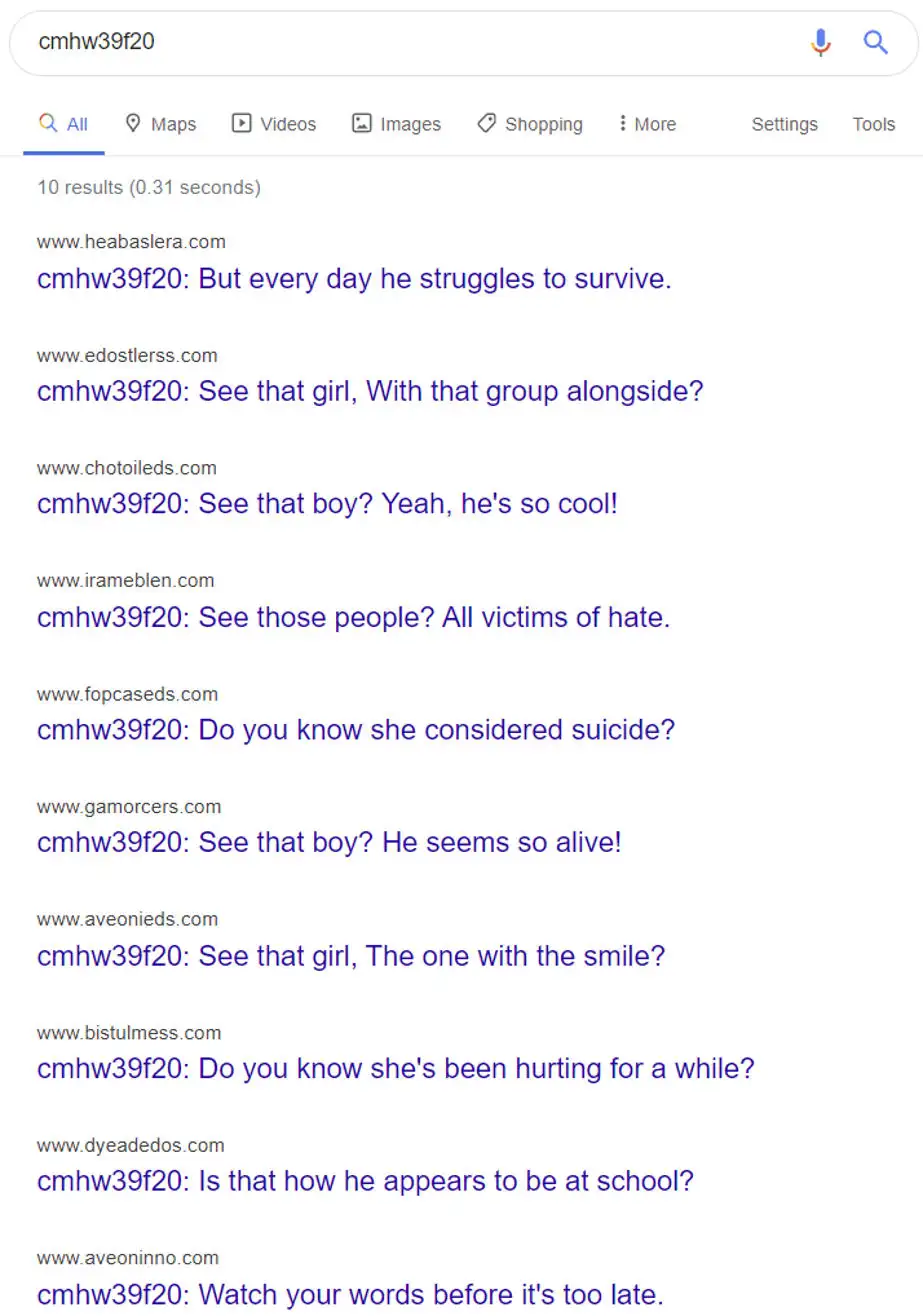
Correct meta titles now but in the wrong order
The title changes also seemed to make rankings more volatile. So next we added additional keyword mentions to the sites we wanted to rank top and limited them on those we wanted to rank at the bottom. With keyword density being such an old school tactic, we were interested to find out if the effects of doing so would be as straight forward as we had hoped (or if it had any effect at all). Unfortunately, this only helped marginally. The results more closely followed the desired poem structure but were still not perfect.
Results
We took things a step further and added subheadings to the sites we wanted to rank at the top and staggered the order of them on the page in the order we wanted them to rank (to see if the placement/position of the sub-headings had any effect on the weight Google assumed they carry on the overall topic of the page). This did mean that at times, the sites ranked in the desired order.
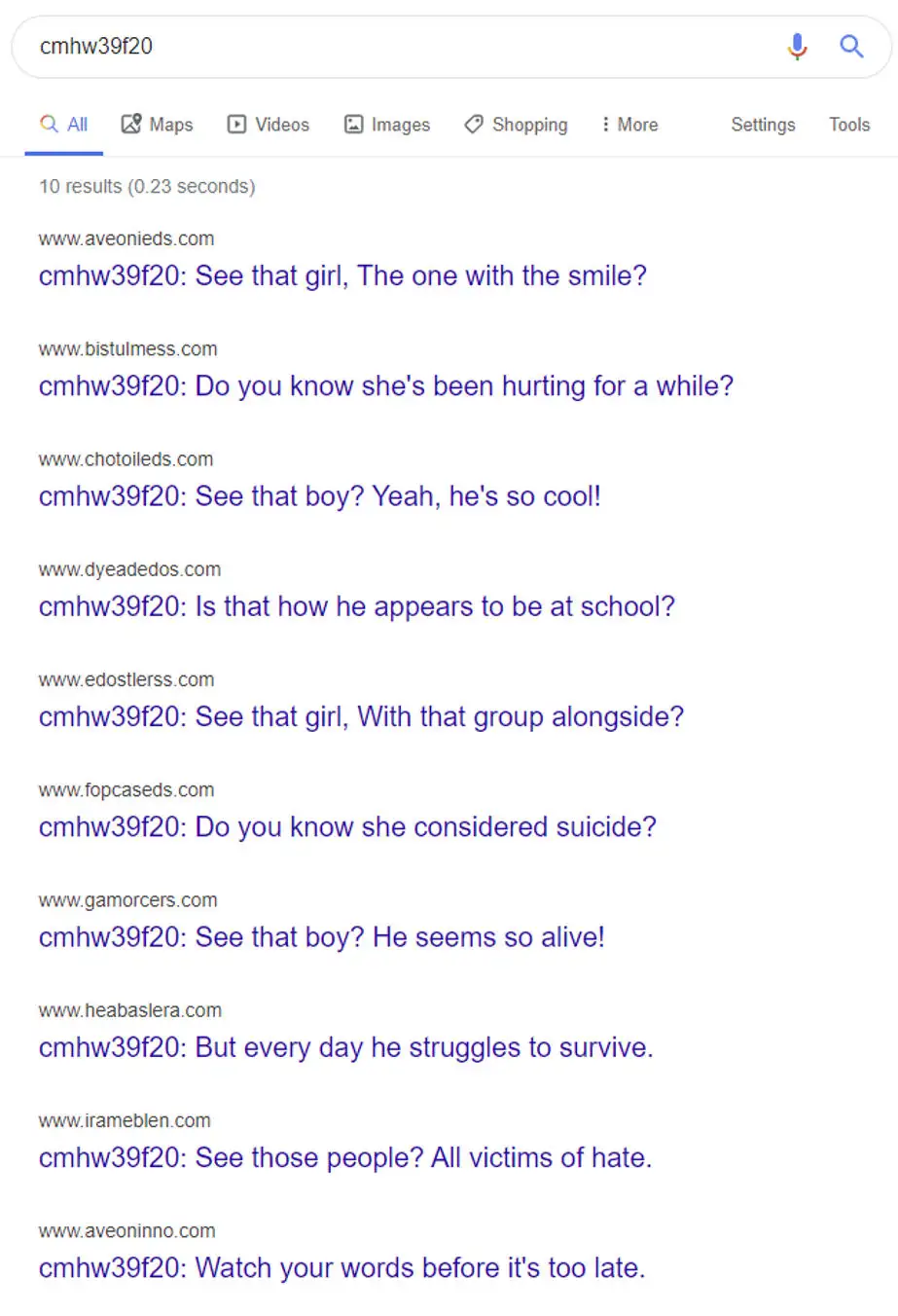
We managed to take a screenshot on one occasion when they were ranking in the correct order.
We have found in our more recent experiments that Google’s algorithm is becoming increasingly unpredictable (as all SEO’s will attest to). Often, the order of results will depend on search location and fluctuate substantially depending on the day (and even hour) of your search. SEO experiments are challenging for a number of reasons and even when you successfully minimise ranking factors which could play a part, there is still an element of randomness (this is actually why in our single variable/ranking factor tests we include control sites/variables).
As the results are still fluctuating and often the meta titles do not display the poem in the correct order, we have decided to see if we can use click-through-rates to cement the positions in the desired place. We are calling all SEOs reading this to carry out the below steps and check back later to see how things turned out (we have reasoning behind the below steps and hope, if followed correctly, they can give the sites that extra push they need to rank in the correct order).
- Search the keyword ‘cmhw39f20’ on Google.co.uk (in Incognito if you have visited any of the sites before).
- Go through each of the sites in the below order (you only need to spend 2 seconds or so on each site, ideally, the same rough amount of time on each). Visit the first site then hit the back button to take you back to the search results before visiting the next one on the list (this should be done in the same session/window).
- aveoninno.com
- irameblen.com
- heabaslera.com
- gamorcers.com
- fopcaseds.com
- edostlerss.com
- dyeadedos.com
- chotoileds.com
- bistulmess.com
- aveonieds.com
- If you would like, you can donate through the Place2Be charity here and show your support for this years Children’s Mental Health Awareness Week.
This experiment was done to a tight deadline and to help raise awareness of this charitable cause. We will be interested to see the results going forward as a result of any click-through-rate activity. We do however acknowledge that once published/public, we lose control over the sites and the test keyword so no firm conclusions can be drawn from any changes as a result.
